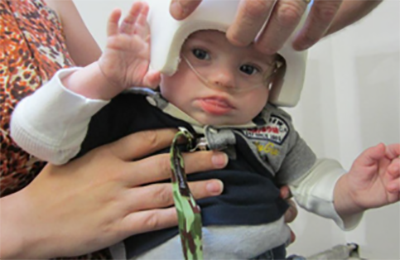My name is Nicole Sheaff, and I reside in Exeter, NH. I am a pediatric occupational therapist by profession and a mother of four children, all diagnosed with various disabilities, including developmental, learning, cognitive, and mental health differences. I am a self-taught advocate out of necessity. My two middle children, Nathan and Arlena, inspired me to pursue disability advocacy work. Their levels of need qualified them for support through the Department of Health and Human Services, thus giving them access to home and community-based services.
Nathan waited ten years for in-home and community-based services (HCBS), and Arlena waited five. Both have significant safety concerns due to impulsiveness, decreased social awareness, and executive functioning skills.
Their high level of need and intense moments of dysregulation meant I was frequently called out of work to address behavioral crises at both school and home. My husband and I worked different shifts to provide 24 hours of supervision and support, which still left us in a 1:4 parent/ child ratio. Due to the need for constant crisis planning, whichever child was independently functioning that day was not a priority. This caused my oldest and youngest to be self-reliant, causing friction between siblings and jealousy over parental attention.
"When our most vulnerable find purpose and success, it benefits us all.”
The moment home support came into our lives was the day my husband and I took our first breath. We could never hire a babysitter, as our children’s needs were too complex. Our aging parents could only handle two kids at a time, and not the two we needed the most help with. Receiving 20 hours of in-home support allowed my husband and I to go out on a date, fostering our relationship so we could better parent our children. Our direct service provider (DSP) worked one-on-one with Nathan and Arlena, helping them with household chores, bringing them out into the community, and providing much- needed supervision as we went to events as a family. We could finally go for a bike ride together without worrying that someone would disappear, refuse to participate, or become dangerously dysregulated. If one child fell apart, the entire group was still able to continue. We were finally able to have fun together. As parents, having a DSP in the house allowed us to give one-on-one positive attention to all the kids.
Unfortunately, Arlena eventually required residential services, and her in-home support ended. Nathan continued to receive limited support for another year. The continued needs of my other children, along with the stressors of sending my daughter to a residential program, caused me extreme stress and guilt. I left my job to coordinate the kids’ needs full-time. We lost 50% of our income and our insurance. Without in-home support, I was once again my children’s DSP, teacher, case manager, psychologist, and occupational therapist. Never just their mom.
When Nathan turned 18 years old, he qualified for Aid for the Permanently and Temporarily Disabled (APTD) and Development Disability waiver. This provided him with a DSP for vocational and community-based services and gave him the resources and support to experience new recreational activities. From a person-focused perspective, he was able to expand his love of construction and chivalry and engaged in a Dungeons and Dragons club, volunteered at Habitat for Humanity, and went to an Archery, Blacksmithing, and a Medieval Knight Cross Fit class. At work, Nathan could check in with his DSP to discuss difficulties with his memory, perspective-taking, social interactions, and critical thinking. In November of 2024, after having DD services for a year, there was an unexpected error with Nathan’s income assessment. He suddenly lost his ATDP Medicaid and, with it, the DD waiver. He no longer had a DSP and subsequently was fired from his job, as his employers were unable to provide the same level of support. During this break in services, Nathan was increasingly depressed, isolated, and losing learned skills. He no longer had autonomy or purpose.
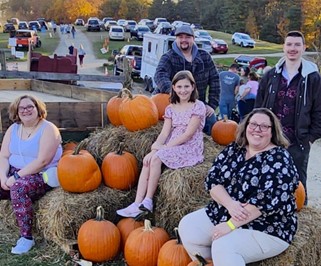 Arlena did exceptionally well after her residential placements, yet due to medical complexities, is now home on medical leave from school, and we are in the process of applying for the In-Home Support (IHS) waiver under HCBS. With recent changes to the NH Bureau of Developmental Services (DHS) waiver eligibility and Medicaid requirements, she may qualify until she is 18. We are excited and hopeful she will be able to qualify for the same support she had 5 years ago.
Arlena did exceptionally well after her residential placements, yet due to medical complexities, is now home on medical leave from school, and we are in the process of applying for the In-Home Support (IHS) waiver under HCBS. With recent changes to the NH Bureau of Developmental Services (DHS) waiver eligibility and Medicaid requirements, she may qualify until she is 18. We are excited and hopeful she will be able to qualify for the same support she had 5 years ago.
In conclusion, any cuts to HCBS will cause our family to go backwards. These cuts will cause increased economic, mental, and physical stress for our entire family and our children will lose their autonomy and purpose. Without HCBS, parents and caregivers will need to leave their jobs to care for their loved ones. Smart and hard-working children like mine will not develop the skills needed to give back to the community through volunteering and paid employment.
Thank you for taking the time to read our story.
My name is Jenna Tousignant. I am a nurse, and I live in Somersworth with my mother and my youngest son, Cal. Two of my children have disabilities and receive the benefits of Home and Community Based Services (HCBS) through our local area agency.
My daughter Michaela is my oldest child. She is 28 years old, loves fashion and make up, and can be a real sassy drama queen. She has epilepsy and a nonverbal learning disability.  She lives in an apartment for the elderly and disabled just down the street from me. Home and Community Based Services provide her with a direct support person five days per week to help her grocery shop, manage her apartment, and enjoy some recreational time as well. Michaela successfully manages living independently with this assistance. Michaela takes dance classes and engages in volunteer activities. She is the reigning Miss Amazing Queen for New Hampshire. In this role, she advocates for people with disabilities, is a role model for other young ladies, and increases visibility and awareness of disability.
She lives in an apartment for the elderly and disabled just down the street from me. Home and Community Based Services provide her with a direct support person five days per week to help her grocery shop, manage her apartment, and enjoy some recreational time as well. Michaela successfully manages living independently with this assistance. Michaela takes dance classes and engages in volunteer activities. She is the reigning Miss Amazing Queen for New Hampshire. In this role, she advocates for people with disabilities, is a role model for other young ladies, and increases visibility and awareness of disability.
"Cutting HCBS would be a huge step backwards in Michaela and Cal’s lives, and the lives of all people with disabilities who live, work, and contribute to their communities in meaningful ways.”
 Cal is 17 and a senior at Somersworth High School. He has a rare genetic anomaly that involves seizures and significant developmental delays. He is largely nonverbal and needs one- to-one assistance at all times for his own safety. Through HCBS, he has been able to participate in therapeutic horseback riding, adaptive dance class, and cheerleading. He benefits from the assistance of a direct support person when we can find one. His respite funds provide a break for all of us and allow him to spend time with other caring adult role models. Cal’s plan is to go to a day program also funded through HCBS when he leaves the school system at age 22. This will allow him to spend time with his peers, engage in activities in the community, and bring some structure and meaning to his days.
Cal is 17 and a senior at Somersworth High School. He has a rare genetic anomaly that involves seizures and significant developmental delays. He is largely nonverbal and needs one- to-one assistance at all times for his own safety. Through HCBS, he has been able to participate in therapeutic horseback riding, adaptive dance class, and cheerleading. He benefits from the assistance of a direct support person when we can find one. His respite funds provide a break for all of us and allow him to spend time with other caring adult role models. Cal’s plan is to go to a day program also funded through HCBS when he leaves the school system at age 22. This will allow him to spend time with his peers, engage in activities in the community, and bring some structure and meaning to his days.
As you can see, our family is directly impacted by Home and Community Based Services (HCBS) in multiple ways every single day. If this program is cut, Michaela will not have the necessary supports to live independently. Cal will not have any program to go to when he leaves school.
The care of both of them will likely fall to me. I will have to leave my job as a nurse to care for and support them. This will remove a nurse from the workforce during a nursing shortage, while placing myself and my family in a precarious financial position. HCBS costs much less than institutionalized care. Cutting HCBS would be a huge step backwards in Michaela and Cal’s lives, and the lives of all people with disabilities who live, work, and contribute to their communities in meaningful ways.
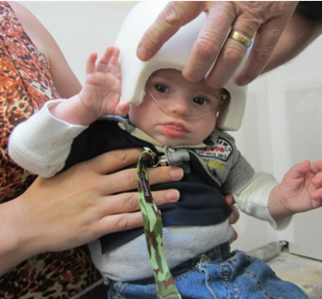 Hello, my name is Lisa Steadman and I live in Troy with my husband Mikel and our three children. I am a LEND trainee in the family discipline. My boys Noah and Max are 12 months apart in 8th and 7th grades, and our little girl Adalie turns 7 on April 8th and is in 1st grade.
Hello, my name is Lisa Steadman and I live in Troy with my husband Mikel and our three children. I am a LEND trainee in the family discipline. My boys Noah and Max are 12 months apart in 8th and 7th grades, and our little girl Adalie turns 7 on April 8th and is in 1st grade.
My first son Noah was 9 months old when Max was prenatally diagnosed with Down Syndrome. At the time, I had no experience with disabilities. The diagnosis was overwhelming for a new mom and my very first thought was ‘how am I going to give Noah the attention he needs when I know Max’s condition will be so demanding’? From
the very beginning, Max’s Down Syndrome was a family matter because we knew he was coming home and it would impact us all. Churches used to tell mothers ‘put that one in a school so you can care for the rest’, and I thank God for HCBS services that save families from those societal pressures today.
Max was medically complex as an infant. Within his first 9 months he had an intestinal bypass, heart surgery to repair a congenital defect, and multiple respiratory viruses. In those days, we carried portable oxygen tanks with us and he had an oxygen concentrator in his bedroom. After his surgeries, Max healed and began to enjoy the same activities as his peers and brother. This was made possible through services provided by his In Home Supports waiver. The Home Modification service option covered costs when we had extra handrails installed in our home so he could hold onto both sides and go up and down stairs safely. We have paid for the See and Learn Down Syndrome reading program through Individual Goods and Services. The Respite service option paid our friend to accompany Max at recreational events he wouldn’t otherwise be able to attend.
The Community Integration service option allows Max to attend camp in the summer and adaptive dance classes throughout the year. Through his Community Participation funds, we have paid direct support providers like Miss Brittany (Miss Beany) and Miss Amelia (Mia) to take Max out of the house and do fun things while learning to be safe in the car and parking lots and take turns while playing games. These ladies have been my partners in Max’s growth. By going out with someone other than a family member, it allows me to be ‘just Mom’, like I am to my other two kids. This helps ensure my relationship with my son is natural. I’m still Mom, not staff, the support worker, or therapist.
"This helps ensure my relationship with my son is natural. I’m still Mom, not staff, the support worker, or therapist.”
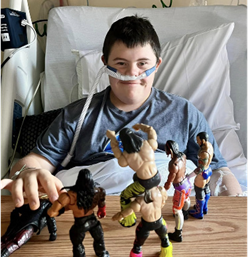 I’ve recently come to truly appreciate the value of my service coordinator. Through the years, Anna was my guide. Because of her I knew about medical, social, and educational resources that were available to me like Family Support, training events, and the NH Leadership series which lead me to be here today with LEND. She introduced me to Monique, a behavior specialist, who showed us how to curb Max’s dangerous behaviors like biting and eloping and gave me parenting tools that got me through days that would have been unbearable otherwise. Anna kept me sane because I knew I wasn’t alone and she steered me clear of experiencing the Wild, Wild West in my household.
I’ve recently come to truly appreciate the value of my service coordinator. Through the years, Anna was my guide. Because of her I knew about medical, social, and educational resources that were available to me like Family Support, training events, and the NH Leadership series which lead me to be here today with LEND. She introduced me to Monique, a behavior specialist, who showed us how to curb Max’s dangerous behaviors like biting and eloping and gave me parenting tools that got me through days that would have been unbearable otherwise. Anna kept me sane because I knew I wasn’t alone and she steered me clear of experiencing the Wild, Wild West in my household.
Because of HCBS, we were able to add Wellness Coaching to Max’s services. Last Thursday he began weekly workouts with Miss JeanMarie, who will also help him learn more about healthy diet. At 13, Max is 5’3” and 207 lbs. He sleeps with oxygen because he has been slow to recover from a bout of pneumonia early in the school year and just had a sleep study to look for sleep apnea. It’s not uncommon for people with Down Syndrome to become obese due to low muscle tone and insatiable appetite. Max’s health has become a constant cause for concern and we are grateful for options to begin addressing what is sure to be a lifelong battle. With his wellness visits in place, Max will begin to lose weight, helping him avoid countless doctor’s visits in the future.
As Max approaches age 14, we will begin planning for his transition to adulthood. We know he will continue to need many of the services he’s used in the past, and we will add the Non Medical Transportation and Residential options currently available under the HCBS waiver.
"Max may never be able to experience independence and the freedom to forge his own path. I pray every day that our legislature doesn’t take that from him."
Max hopes to live outside our home independent from our immediate family. Of the residential options that exist now, it will be most fitting for Max to live with a home provider, just far enough from home to feel some sense of autonomy, in a place where he is known and loved. If that option is not available, Max may never be able to experience independence and the freedom to forge his own path. I pray every day that our legislature doesn’t take that from him. Max deserves to live a good life and, like all Americans, have the power to make his own decisions.
My name is Karin Mortimer, I am a life-long resident of Merrimack. I live with my husband of 25 years and our two children. Our 14-year-old son, Tyler, is a high school freshman who loves baseball, football, and Xbox video games. Tyler has cerebral palsy, epilepsy, and an intellectual disability from a brain injury sustained at birth.
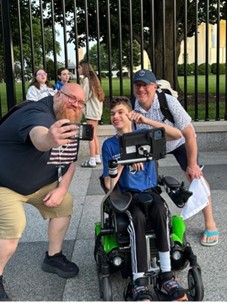 For the past 14 years, Tyler’s complex medical needs have primarily been met through Medicaid health insurance and the Home and Community Based Services (HCBS) waiver program. Tyler’s Medicaid insurance covers a range of therapies and medical interventions such as orthotic braces, MRIs, EEGs, and X-rays. His equipment needs include manual and power wheelchairs, gait trainers, and other mobility aids that require regular upgrades as he grows.
For the past 14 years, Tyler’s complex medical needs have primarily been met through Medicaid health insurance and the Home and Community Based Services (HCBS) waiver program. Tyler’s Medicaid insurance covers a range of therapies and medical interventions such as orthotic braces, MRIs, EEGs, and X-rays. His equipment needs include manual and power wheelchairs, gait trainers, and other mobility aids that require regular upgrades as he grows.
Under the HCBS waiver, Tyler qualifies for 50 hours of in-home care support. Because of the current nursing shortage, it has been difficult to find reliable care. To mitigate this challenge, I became a Licensed Nursing Assistant (LNA) in 2021 and now serve as Tyler’s paid caregiver through a home health agency. This arrangement and the HCBS waiver allowed me to step away from my corporate banking career—where I was balancing over 60 hours of work weekly—with my husband, who also works full-time while sharing caregiving responsibilities.
Cuts to Medicaid will be catastrophic to our family. Tyler would lose access to the speech, occupational and physical therapies he receives weekly. We wouldn’t be able to afford the durable medical equipment and mobility equipment he needs to be independent. He would lose access to the specialized medical care he requires because of his complex medical needs. Our family would lose our financial stability as it would put us back in the predicament of trying to balance full-time employment while managing Tyler’s full- time caregiving needs.
While my husband and I will continue to be Tyler’s primary caregivers, losing the compensation I receive through HCBS for my caregiving responsibilities could financially burden me to balancing a full-time job with Tyler’s significant and unpredictable needs would become extremely challenging.
"Medicaid funding is not fraud, waste, and abuse. Tyler’s well-being is not fraud. His medical care is not waste, and he is certainly not abusing the system."
 The most worrisome issue for our family is that cuts to HCBS could lead to the distressing possibility of institutional care in the future if we are unable to support him as we age. Tyler is well-loved among his peers and engages actively in the unified sports teams, as wellas the varsity football team at his high school and the Saint Anselm Hawks Football team. Our community deeply appreciates him, as evidenced by the frequent friendly interactions we encounter in town. Tyler has a fundamental right to live with his family and participate fully in his community. He also deserves the autonomy to make decisions about his life.
The most worrisome issue for our family is that cuts to HCBS could lead to the distressing possibility of institutional care in the future if we are unable to support him as we age. Tyler is well-loved among his peers and engages actively in the unified sports teams, as wellas the varsity football team at his high school and the Saint Anselm Hawks Football team. Our community deeply appreciates him, as evidenced by the frequent friendly interactions we encounter in town. Tyler has a fundamental right to live with his family and participate fully in his community. He also deserves the autonomy to make decisions about his life.
Medicaid funding is not fraud, waste, and abuse. Tyler’s well-being is not fraud. His medical care is not waste, and he is certainly not abusing the system. Please keep in mind Tyler’s infectious smile and acknowledge that he, like everyone else, deserves the chance to live his best life just like you and me.
Learn more about our impact: iod.unh.edu





 Arlena did exceptionally well after her residential placements, yet due to medical complexities, is now home on medical leave from school, and we are in the process of applying for the In-Home Support (IHS) waiver under HCBS. With recent changes to the NH Bureau of Developmental Services (DHS) waiver eligibility and Medicaid requirements, she may qualify until she is 18. We are excited and hopeful she will be able to qualify for the same support she had 5 years ago.
Arlena did exceptionally well after her residential placements, yet due to medical complexities, is now home on medical leave from school, and we are in the process of applying for the In-Home Support (IHS) waiver under HCBS. With recent changes to the NH Bureau of Developmental Services (DHS) waiver eligibility and Medicaid requirements, she may qualify until she is 18. We are excited and hopeful she will be able to qualify for the same support she had 5 years ago. She lives in an apartment for the elderly and disabled just down the street from me. Home and Community Based Services provide her with a direct support person five days per week to help her grocery shop, manage her apartment, and enjoy some recreational time as well. Michaela successfully manages living independently with this assistance. Michaela takes dance classes and engages in volunteer activities. She is the reigning Miss Amazing Queen for New Hampshire. In this role, she advocates for people with disabilities, is a role model for other young ladies, and increases visibility and awareness of disability.
She lives in an apartment for the elderly and disabled just down the street from me. Home and Community Based Services provide her with a direct support person five days per week to help her grocery shop, manage her apartment, and enjoy some recreational time as well. Michaela successfully manages living independently with this assistance. Michaela takes dance classes and engages in volunteer activities. She is the reigning Miss Amazing Queen for New Hampshire. In this role, she advocates for people with disabilities, is a role model for other young ladies, and increases visibility and awareness of disability. Cal is 17 and a senior at Somersworth High School. He has a rare genetic anomaly that involves seizures and significant developmental delays. He is largely nonverbal and needs one- to-one assistance at all times for his own safety. Through HCBS, he has been able to participate in therapeutic horseback riding, adaptive dance class, and cheerleading. He benefits from the assistance of a direct support person when we can find one. His respite funds provide a break for all of us and allow him to spend time with other caring adult role models. Cal’s plan is to go to a day program also funded through HCBS when he leaves the school system at age 22. This will allow him to spend time with his peers, engage in activities in the community, and bring some structure and meaning to his days.
Cal is 17 and a senior at Somersworth High School. He has a rare genetic anomaly that involves seizures and significant developmental delays. He is largely nonverbal and needs one- to-one assistance at all times for his own safety. Through HCBS, he has been able to participate in therapeutic horseback riding, adaptive dance class, and cheerleading. He benefits from the assistance of a direct support person when we can find one. His respite funds provide a break for all of us and allow him to spend time with other caring adult role models. Cal’s plan is to go to a day program also funded through HCBS when he leaves the school system at age 22. This will allow him to spend time with his peers, engage in activities in the community, and bring some structure and meaning to his days. Hello, my name is Lisa Steadman and I live in Troy with my husband Mikel and our three children. I am a LEND trainee in the family discipline. My boys Noah and Max are 12 months apart in 8th and 7th grades, and our little girl Adalie turns 7 on April 8th and is in 1st grade.
Hello, my name is Lisa Steadman and I live in Troy with my husband Mikel and our three children. I am a LEND trainee in the family discipline. My boys Noah and Max are 12 months apart in 8th and 7th grades, and our little girl Adalie turns 7 on April 8th and is in 1st grade. I’ve recently come to truly appreciate the value of my service coordinator. Through the years, Anna was my guide. Because of her I knew about medical, social, and educational resources that were available to me like Family Support, training events, and the NH Leadership series which lead me to be here today with LEND. She introduced me to Monique, a behavior specialist, who showed us how to curb Max’s dangerous behaviors like biting and eloping and gave me parenting tools that got me through days that would have been unbearable otherwise. Anna kept me sane because I knew I wasn’t alone and she steered me clear of experiencing the Wild, Wild West in my household.
I’ve recently come to truly appreciate the value of my service coordinator. Through the years, Anna was my guide. Because of her I knew about medical, social, and educational resources that were available to me like Family Support, training events, and the NH Leadership series which lead me to be here today with LEND. She introduced me to Monique, a behavior specialist, who showed us how to curb Max’s dangerous behaviors like biting and eloping and gave me parenting tools that got me through days that would have been unbearable otherwise. Anna kept me sane because I knew I wasn’t alone and she steered me clear of experiencing the Wild, Wild West in my household. For the past 14 years, Tyler’s complex medical needs have primarily been met through Medicaid health insurance and the Home and Community Based Services (HCBS) waiver program. Tyler’s Medicaid insurance covers a range of therapies and medical interventions such as orthotic braces, MRIs, EEGs, and X-rays. His equipment needs include manual and power wheelchairs, gait trainers, and other mobility aids that require regular upgrades as he grows.
For the past 14 years, Tyler’s complex medical needs have primarily been met through Medicaid health insurance and the Home and Community Based Services (HCBS) waiver program. Tyler’s Medicaid insurance covers a range of therapies and medical interventions such as orthotic braces, MRIs, EEGs, and X-rays. His equipment needs include manual and power wheelchairs, gait trainers, and other mobility aids that require regular upgrades as he grows. The most worrisome issue for our family is that cuts to HCBS could lead to the distressing possibility of institutional care in the future if we are unable to support him as we age. Tyler is well-loved among his peers and engages actively in the unified sports teams, as wellas the varsity football team at his high school and the Saint Anselm Hawks Football team. Our community deeply appreciates him, as evidenced by the frequent friendly interactions we encounter in town. Tyler has a fundamental right to live with his family and participate fully in his community. He also deserves the autonomy to make decisions about his life.
The most worrisome issue for our family is that cuts to HCBS could lead to the distressing possibility of institutional care in the future if we are unable to support him as we age. Tyler is well-loved among his peers and engages actively in the unified sports teams, as wellas the varsity football team at his high school and the Saint Anselm Hawks Football team. Our community deeply appreciates him, as evidenced by the frequent friendly interactions we encounter in town. Tyler has a fundamental right to live with his family and participate fully in his community. He also deserves the autonomy to make decisions about his life.
